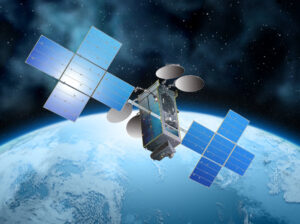EchoStar executives said they were eager to launch the Jupiter-3 satellite being built by Maxar Technologies to bolster Ka-band capacity in North and South America. However, the Jupiter-3 launch has now slipped to the second half of 2022 “due in part to the COVID-19 restrictions that every company is facing and in part to production issues with certain components,” said Pradman Kaul, Hughes Network Systems president. “We are working diligently with Maxar to both mitigate these issues and identify ways to recover the schedule without risk for the satellite.”
EchoStar has selected the launch vehicle for Jupiter-3 but not yet announced it. Kaul said the large rocket selected “should limit the amount of time related to satellite orbit raising, which will assist our in-service schedule.”
EchoStar also experienced a setback when the propulsion systems failed on two nanosatellites the company sent to low Earth orbit to use spectrum gained through its 2019 acquisition of internet-of-things startup Helios Wire.
After reaching orbit on a rideshare flight, the two nanosatellites needed to change their altitude and inclination.
“In both cases, the propulsion onboard the spacecraft malfunctioned,” said Anders Johnson, EchoStar Satellite Services president.
EchoStar purchased the two S-band cubesats from Tyvak Nano-Satellite Systems.
“I can confirm that unfortunately the vehicles did not reach the nominal operational altitude due to the third-party propulsion system not functioning nominally,” Marco Villa, Tyvak president and chief operating officer, said by email.
EchoStar plans to launch another nanosatellite with a different propulsion system in the second or third quarter of this year.
EchoStar’s overall financial performance, as measured by Earnings Before Interest, Taxes, Depreciation, and Amortization (EBITDA), grew 7% in the fourth quarter of 2020 compared with the fourth quarter of 2019.
EchoStar reported a $2.6 million net loss from fourth-quarter continuing operations, compared with a $53.7 million net loss one year earlier as a result of higher operating income, lower interest expenses, improvement in foreign currency transactions and investment gains.
As of Dec. 31, Hughes served about 1.56 million broadband customers.



